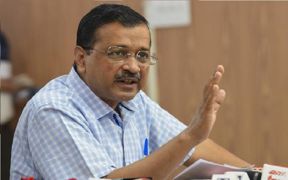Subir Roy
THE immediate bad news for the elderly is that in the near future things are likely to get worse. The overall picture is painted in some detail by the 2017 Global Retirement Index, the fifth annual in depth assessment of retirement security in the developed and emerging economies conducted by a large French entity, Natixis Global Asset Management. The index covers economies designated as advanced by the IMF, member countries of the OECD and the BRIC economies. In this list of 43, India ranks absolutely the last. All the BRIC economies (Brazil, Russia, India and China) figure in the last ten but China leads them at 38th.
The index covers four themes: material well-being (having the means to live comfortably in retirement), finances in retirement (good financial advice to preserve value and maximise income), health (access to quality services) and quality of life (clean and safe environment). India scores particularly poorly in health, quality of life and material well-being (in that order). Overall, the results hold few surprises. Western Europe dominates the top ten, and four of the five Nordic countries are there. Norway and Switzerland are in the lead and significantly the US comes a poor 17th.
The key development spanning the recent past and the immediate future affecting the elderly in India is the direction in which interest rates for bank fixed deposits, in which a good chunk of retirement savings are held, have been and are likely to move. Along with falling inflation they have been coming down. The just released second part of the annual Economic Survey has pointed to the declining inflation and the still high real interest rates to firmly tell the Reserve Bank of India to further bring down policy rates. That will be a cue for banks to lower their interest rates further.
Theoretically, declining prices and nominal interest rates should ensure that real value of incomes is protected. But the current reality is quite different. The introduction of the goods and services tax has led to an almost across-the-board rise in the prices of what the middle class shops for, from ‘mithai’ to medicines, and the wayward monsoon have sent vegetable prices sky high, led by onions, affecting everybody.
The critical point for India is that it is seriously lagging in offering retirement benefits. According to the ILO, only 12.4 per cent of the working age people overall and an abysmal 4.6 per cent of the working age women are covered by any kind of pension. Additionally, there is little time in which to come up to minimum standards. India is a young country rapidly getting older and by 2050 will be in the same position as today’s developed world in terms of share of the elderly in the total population. Worse, informal family support, the backbone of the Indian system, is dwindling.
A Crisil study says that to get moving, India has to target its vast unorganised sector to come under a voluntary pension system so as to get over the current deficiencies of low penetration, low contribution and poor persistency. Within this, I feel, imaginative schemes for women have to be designed.
The only ray of hope for the elderly poor is the social pension, Indira Gandhi National Old Age Pension Scheme, for those below the poverty line. It covered a bare 23 million in 2014-15 and paid an abysmal Rs 200 per month. The states do top this up but their contribution varies enormously, Assam paying Rs 50 and Tamil Nadu Rs 800. But the biggest problem is exclusion. Many don’t have BPL cards and many who do, don’t get the pension.
Conventional financial wisdom has caused a lot the world to move away from ‘defined benefit’ (you will get an assured pension) to ‘defined contribution’ (you will contribute throughout your working life into a professionally managed pension fund whose returns will determine your pension).
But there is another model of an assured universal state funded pension which has been successfully followed in some Nordic countries and a few others. Critically, they have not gone bust like Brazil trying to keep paying assured handsome pension even after global commodity prices crashed and with it the state resources.
The key reason for the success of the Nordic economies is that they have combined market-driven economic policies with a powerful social security regime. In particular, there is labour market flexibility so that companies can hire and fire but also see workers through an endless process of retraining so that they can access new jobs requiring new skills.
The only practical path for India (universal social pension, which takes financial risk out of old age, is right now an unrealisable goal) is to make it virtually mandatory for all to contribute to a pension fund which is professionally managed. Now there is an obvious financial risk in this as not all fund managers are equally clever, not to speak of the downside of a rare Black Swan event.
Plus, there is a logical flaw in the oft-repeated adage, supported by the government, that since pension savings are for the long term, they should have a high weightage in equities which offer the best long-term returns. But to get long-term returns you have to hold long term. Professional managers of funds churn them continuously.
A good way to ensure a reasonable pension for all and lower long-term financial risk is for the government to clearly back the option in the National Pension Scheme to go for a fund invested only in government bonds. Plus (this is the controversial part), it should chip in with a subsidy when pensions tend to suffer for whatever reason even as prices all around are going up sharply. The real value of pensions should invariably be protected.



























